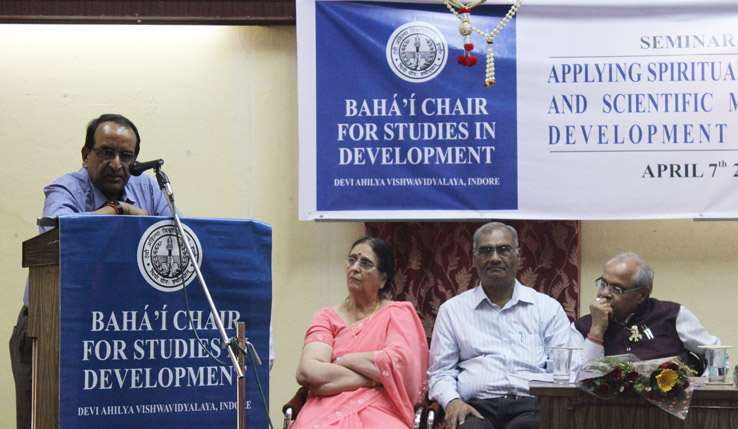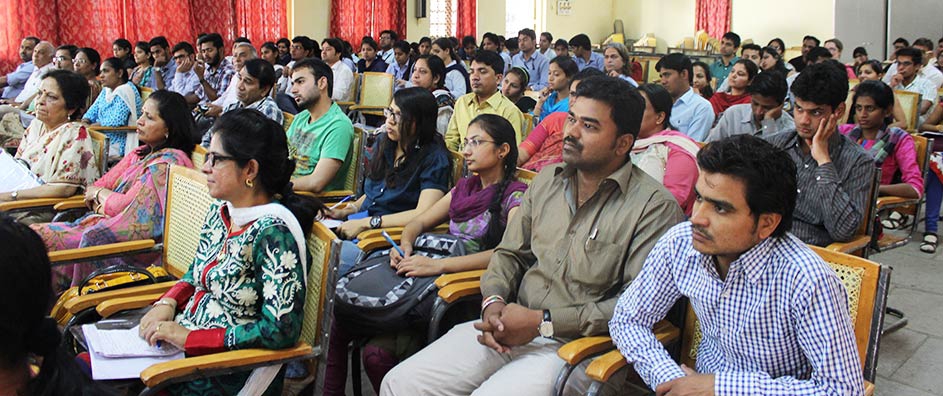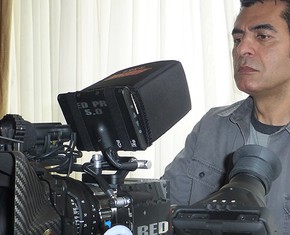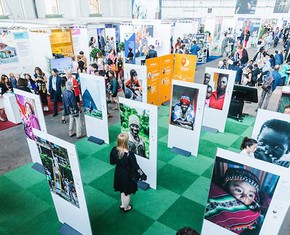On the one hand you have wealth, and great luxury; on the other hand men and women are living in the extremities of hunger and want. This great contrast of life is one of the blots on the civilization of this enlightened age. You must turn attention more earnestly to the betterment of the conditions of the poor. – Abdu’l-Baha, Abdu’l-Baha in London, p. 91.
Approximately 90 academics, development practitioners, and university students gathered for a seminar in Indore, India recently, to explore the direction of development planning and policies in India.

Organized by the Baha’i Chair for Studies in Development at Devi Ahilya University in Indore, the seminar, titled Applying Spiritual Principles and Scientific Methods to Development Practice, brought together leading thinkers to explore how social and economic development in the country can be approached holistically and its benefits be extended to all sections of society equitably.
In preparation for the seminar, panelists studied a document prepared by the Institute for Studies in Global Prosperity on the experiences of an Indian development organization, Seva Mandir, which helped to frame the discussions throughout the day. Titled, May Knowledge Grow in our Hearts: Applying Spiritual Principles to Development Practice, the paper describes Seva Mandir’s efforts to apply spiritual principles and scientific methods to bring about social transformation.
The seminar began with a ceremonial lighting of the lamp, a symbolic act signifying the dispelling of the darkness of ignorance and sorrow. The University’s Vice Chancellor Dr. D.P. Singh, who delivered the inaugural address, set the tone for the discussions to follow by highlighting the need to reorient development plans and policies based on a non-fragmented conception of the human being.
In the panel discussion that followed, Mr. Shravan Garg, a senior journalist, noted that India needed to bring the knowledge systems of science and religion together to forge a path of development that avoided the dangers of materialism and consumerism on the one hand and religious fundamentalism on the other.
Also on the panel, Dr. Ranjana Sehgal, Professor at the Indore School of Social Work, warned that the consequences of pursuing mere economic development untempered by the country’s strong spiritual heritage, could be seen in the rise of “intolerance, corruption, terrorism, and crime, especially those against women.”
In deliberating on those spiritual principles that have particular relevance to development practice, the speakers identified the oneness of humankind and the interconnectedness of human beings with nature as among the foremost.
“For development to be truly effective it has to transform hearts and to transform hearts we need an atmosphere of love and unity. Development work draws on unity; it should also strengthen unity,” said Dr. Janak Palta McGilligan, a Baha’i development practitioner who was recently awarded by the government of India with the Padma Shri, one of the country’s highest civilian honors in recognition of her work.
Panelists also discussed the relationship between wealth and development and explored spiritual principles that provide insights into responsible attitudes towards wealth.
Dr. Ganesh Kawadia, Head of the School of Economics at the University, mentioned that since the time of Adam Smith, development has been equated with wealth creation.
“The market was considered the most efficient and fair mechanism to do this to the benefit of both buyer and seller,” he said. However, he added that this could only be realized on condition of perfect competition in the market, a theoretical criterion that has never been realized in practice.
“What we see today then,” he said, “is the failure of the market. Wealth generation is pursued independent of ethical considerations, resulting in exploitation and injustice.”
Commenting on the blind pursuit of economic growth, Mr. Garg explained that it has disrupted the essential relationships on which people’s sense of well-being rests.
“Millions of people in India derive a sense of well-being from culture and spirituality and not economic wealth. Their sense of well-being is rooted in their habitat from which they derive their overall sustenance. When in the name of economic development people are moved from their land and deprived of their water resources or their forests, they become displaced not only materially but also socially, emotionally, and spiritually.”
Dr. Arash Fazli a collaborator with the Baha’i Chair, added that when we are conscious of the spiritual bonds that tie us to each other and to our environment, individuals acting purely on self-interest to maximize personal gain no longer makes sense.
“Development comes to be seen as a collective enterprise in which we seek our own well-being in serving the well-being of all. A selfless spirit of service becomes our motivator,” said Dr. Fazli.
Although panelists recognized that the goal of treading an alternative path of development that would bring together science and religion seemed daunting, there was a consensus among the speakers that deliberations of this nature involving ever larger numbers of concerned citizens were urgent and vital.
“The processes of globalization are taking this materialistic model of development to country after country,” stated Mr. Garg. “We need to find a model of development that is true to our ethos but is also based on science. We need to open to the world and get the best from the world without losing the good that we have.”
Commenting on the seminar, Dr. Shirin Mahalati, Head of the Baha’i Chair, observed that for the students and faculty who participated, the event provided an opportunity to reflect on ways of overcoming the limitations of materialistic models of development through an appreciation of the role spiritual principles and scientific methods play in the advancement of civilization.
















Comments
Sign in or create an account
Continue with Googleor